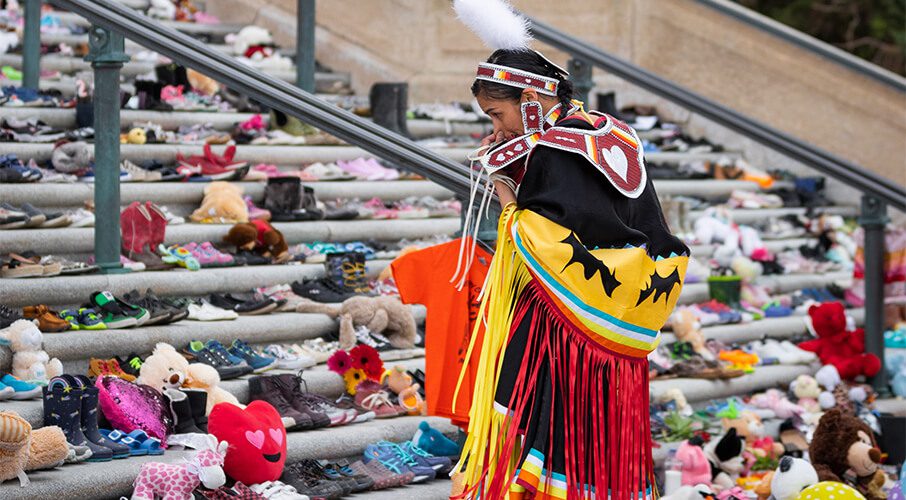This article originally appeared in the Toronto Star.
By Ken Coates, November 21, 2022
Despite numerous multimillion-dollar commitments to First Nations, Métis and Inuit communities, the federal government knows the allocations are typically little more than stopgap measures, with anticipated targets rarely met. While there have been significant Indigenous achievements, community conditions are not improving quickly enough.
The country has been obsessed about identifying those responsible for the problems facing Indigenous peoples, with particular attention on 19th- and early 20th-century developments including residential schools, reserves, modern treaties, the Indian Act and deliberate attacks on Indigenous cultural practices.
These interventions were fuelled and sustained by the profound racism of the Victorian era, when government expected “weaker” Indigenous peoples to succumb to imported diseases. Canadian society criticized Indigenous spirituality, mocked their ceremonies, condemned their approach to work, and found fault with their values, languages and lifeways. The burden of racism caused great disruptions to Indigenous communities.
But consider some little-discussed realities. As late as the 1950s, most Indigenous people spoke their traditional languages. Elders knew the land and provided guidance to community members. Harvesting remained commonplace — and a key source of food and other supplies — across most of the country, particularly in northern regions. Government agents were few and had limited authority. Mobility remained commonplace, with seasonal shifts to fish, hunt, trap and gather.
When government exercised its authority, which it did irregularly, it was disruptive, even cruel. But the limited state of economic development in much of the country left most Indigenous peoples to follow their preferred lifeways.
By 1970, residential schools and compulsory education had expanded greatly. Major gaps had emerged between elders raised on the land, and their grandchildren who were often taught to disdain traditional ways. Reserve living was enforced, eroding movements and harvesting. Indian Agents had money and power; band councils exercised little authority. And Ottawa had transformed itself into a supplicants’ table, dispensing increasing sums of money while imposing rigorous application and reporting procedures.
The effects were profound. Indigenous language use had fallen off a cliff. Harvesting declined rapidly, due to cultural factors and the disruption of traditional lands and resources. Many Indigenous people moved away from their lands to larger communities. Of greatest importance, dependence on government welfare payments became commonplace. As the sense of hopelessness grew, criminal activity, depression, suicide and substance abuse became more frequent among Indigenous peoples.
Canadians have draped a cone of silence over postwar realities. It is easier to blame John A. Macdonald than to scrutizine the impact and motivations of the rapid expansion of the social welfare state after the Second World War. However, there is a fundamental difference.
The 19th-century efforts were driven primarily by racist assumptions and discriminatory instincts. Post-1950s activism, in contrast, was predicated on a genuine concern for Indigenous well-being and the paternalistic belief that government knew what was best. Canadian officials truly thought they were doing good, constructive work, and believed in their many interventions.
While the early interventions on Indigenous affairs were disruptive, even devastating, the last half-century has also inflicted serious damage to the soul and fabric of Indigenous communities. The country needs to look more critically at the effects of federal paternalism as a root cause of the current challenges facing Indigenous peoples.
Indigenous people know what is best for their communities and their members. Government officials, however well-intentioned, stand light years away from Indigenous realities and priorities. Furthermore, the opaque Ottawa-centric decision-making and complex reporting requirements constrain, overwhelm and overmanage the small and under-resourced Indigenous governments.
There is only one solution to the complex challenges facing Indigenous peoples in Canada: a rapid move toward Indigenous autonomy. Ottawa needs to stand back — way back — from running the affairs of Indigenous communities.
The growing recognition of Indigenous rights, multi-year funding arrangements, and establishment of Indigenous self-government are steps in the right direction. Canada can, if it looks closely, see a more prosperous, constructive, accountable, and sustainable Indigenous future — one that is largely under Indigenous control and that better serves both Indigenous peoples and the country as a whole.
Ken Coates is director of the Indigenous Affairs Program at the Macdonald-Laurier Institute, and a Canada research chair at the University of Saskatchewan.






